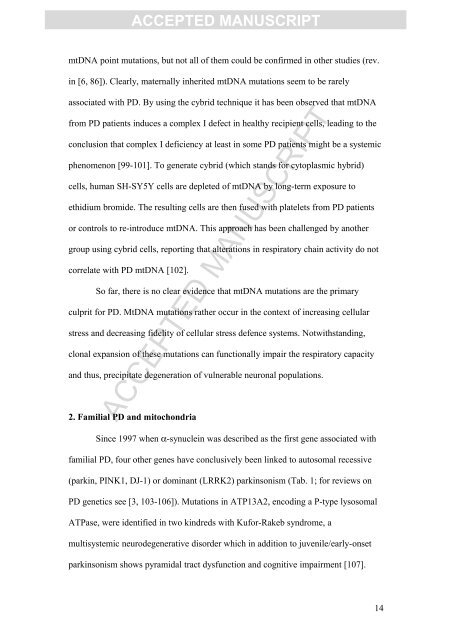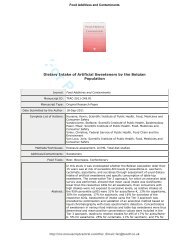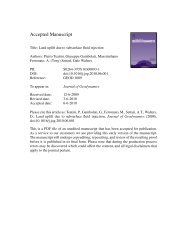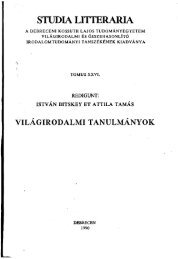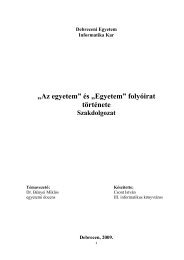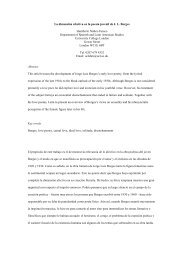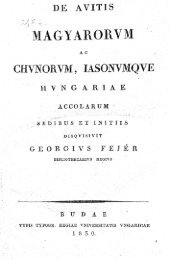accepted manuscript
accepted manuscript
accepted manuscript
Create successful ePaper yourself
Turn your PDF publications into a flip-book with our unique Google optimized e-Paper software.
ACCEPTED MANUSCRIPT<br />
mtDNA point mutations, but not all of them could be confirmed in other studies (rev.<br />
in [6, 86]). Clearly, maternally inherited mtDNA mutations seem to be rarely<br />
associated with PD. By using the cybrid technique it has been observed that mtDNA<br />
from PD patients induces a complex I defect in healthy recipient cells, leading to the<br />
conclusion that complex I deficiency at least in some PD patients might be a systemic<br />
phenomenon [99-101]. To generate cybrid (which stands for cytoplasmic hybrid)<br />
cells, human SH-SY5Y cells are depleted of mtDNA by long-term exposure to<br />
ethidium bromide. The resulting cells are then fused with platelets from PD patients<br />
or controls to re-introduce mtDNA. This approach has been challenged by another<br />
group using cybrid cells, reporting that alterations in respiratory chain activity do not<br />
correlate with PD mtDNA [102].<br />
So far, there is no clear evidence that mtDNA mutations are the primary<br />
culprit for PD. MtDNA mutations rather occur in the context of increasing cellular<br />
stress and decreasing fidelity of cellular stress defence systems. Notwithstanding,<br />
clonal expansion of these mutations can functionally impair the respiratory capacity<br />
and thus, precipitate degeneration of vulnerable neuronal populations.<br />
ACCEPTED MANUSCRIPT<br />
2. Familial PD and mitochondria<br />
Since 1997 when α-synuclein was described as the first gene associated with<br />
familial PD, four other genes have conclusively been linked to autosomal recessive<br />
(parkin, PINK1, DJ-1) or dominant (LRRK2) parkinsonism (Tab. 1; for reviews on<br />
PD genetics see [3, 103-106]). Mutations in ATP13A2, encoding a P-type lysosomal<br />
ATPase, were identified in two kindreds with Kufor-Rakeb syndrome, a<br />
multisystemic neurodegenerative disorder which in addition to juvenile/early-onset<br />
parkinsonism shows pyramidal tract dysfunction and cognitive impairment [107].<br />
14


